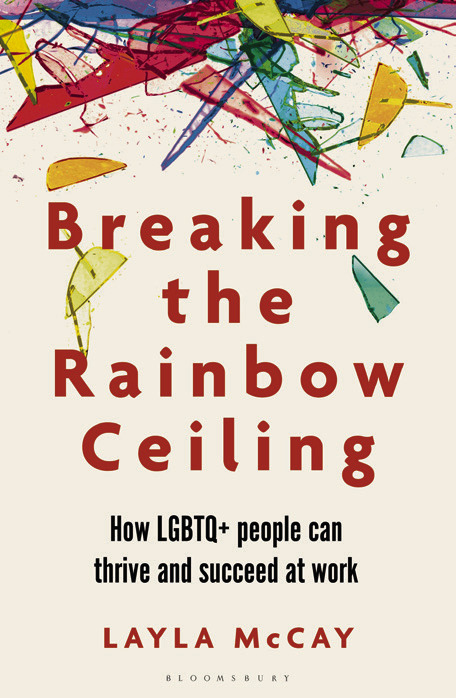You can see the CEO’s office from the outside of your workplace. You’ve actually been in that office, so you know what it looks like inside, too. Big, expansive desk. Cushy, expensive chair. Ankle-deep carpet. The CEO got there through regular means over the course of his career – something you’d like to do, too. But as you know, and as in the new book, “Breaking the Rainbow Ceiling” by Layla McCay, you’ll have to take a different path.
Of all the thousands of board seats and C-suite occupiers in American businesses, only a very tiny number – less than 1 percent – are occupied by people who identify as LGBTQ+. In London, says McCay, no one on the Financial Times Stock Exchange identifies as such. Just six of the world’s leaders, past or current, have come out as LGBTQ+.
The reasons for this are many, from discomfort to a sense of a lack of safety or just plain mistrust. Employees often don’t talk about it and employers can’t or don’t ask, which can lead to a lot of issues that cis, heterosexual employees don’t have to think about.
LGBTQ+ employees make less money than their straight co-workers. They experience discrimination ranging from sexual violence on one end, to microaggressions on the other. Discrimination can be found in educational settings and networking events, in a lack of mentorship and the feeling that one needs to “code-switch.” Even an overseas job offer can be complicated by identifying as LGBTQ+.
And yet, says McCoy, there are benefits to coming out, including a sense of authenticity, and feeling as if a load has been removed from one’s shoulders.
If you are an employer, McCoy says, there are things you can do to help. Include LGBTQ+ people in your diversity programs at work. Insist on it for recruitment. Make sure your employees feel safe to be themselves. Make all policies inclusive, all the time., from the start. Doing so benefits your business. It helps your employees.
“It’s good for society.”
Pretty common sense stuff, no? Yeah, it is; most of what you’ll read inside “Breaking the Rainbow Ceiling” is, in fact, very commonsensical. Moreover, if you’re gay, lesbian, bi, trans or queer, you won’t find one new or radical thing in this book.
And yet, inside all the nothing-new, readers will generally find things they’ll appreciate at least seeing underscored. The statistics, for instance, that author Layla McCay offers would be helpful to cite when asking for a raise. It’s beneficial, for instance, to be reminded why you may want to come out at work or not. The advice on being and finding a mentor is gold. These things are presented through interviews from business leaders around the world, and readers will find comfort and wisdom in that. You’ll just have to wade through a lot of things you already know to get it, that’s all.
Is it worth it? That depends on your situation. You may find nothing in “Breaking the Rainbow Ceiling,” or it may help you raise the roof.
— The Bookworm Sez


